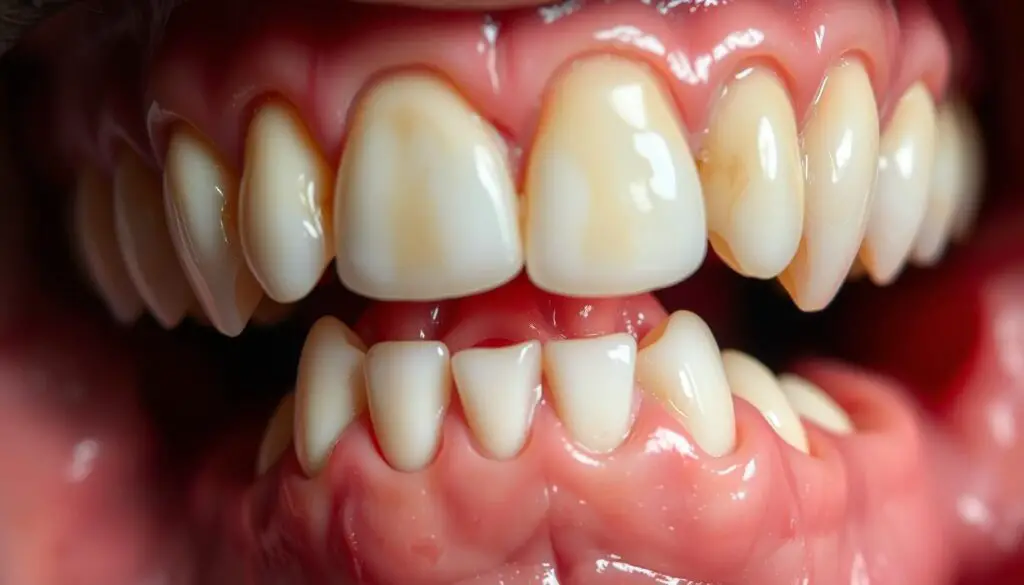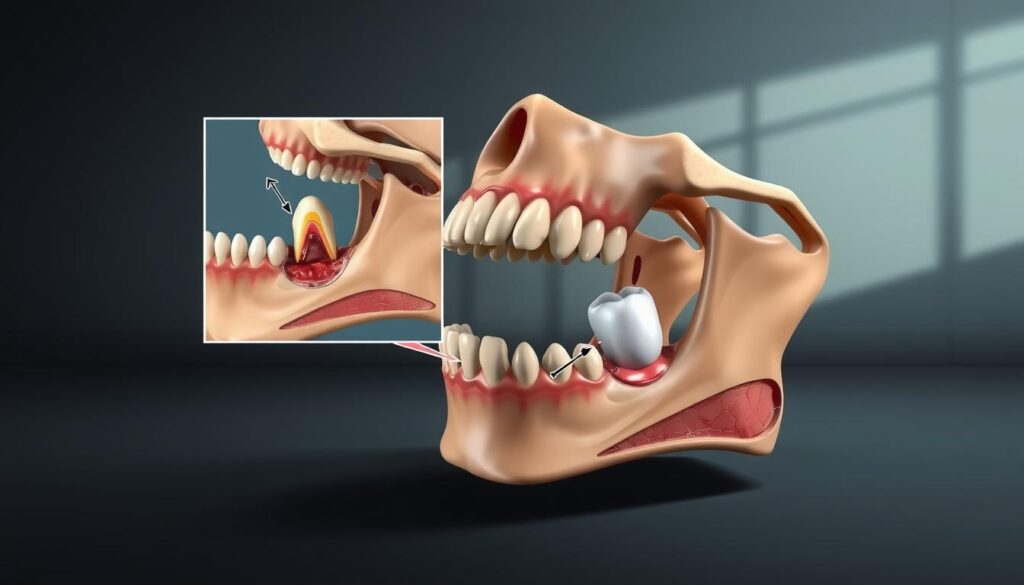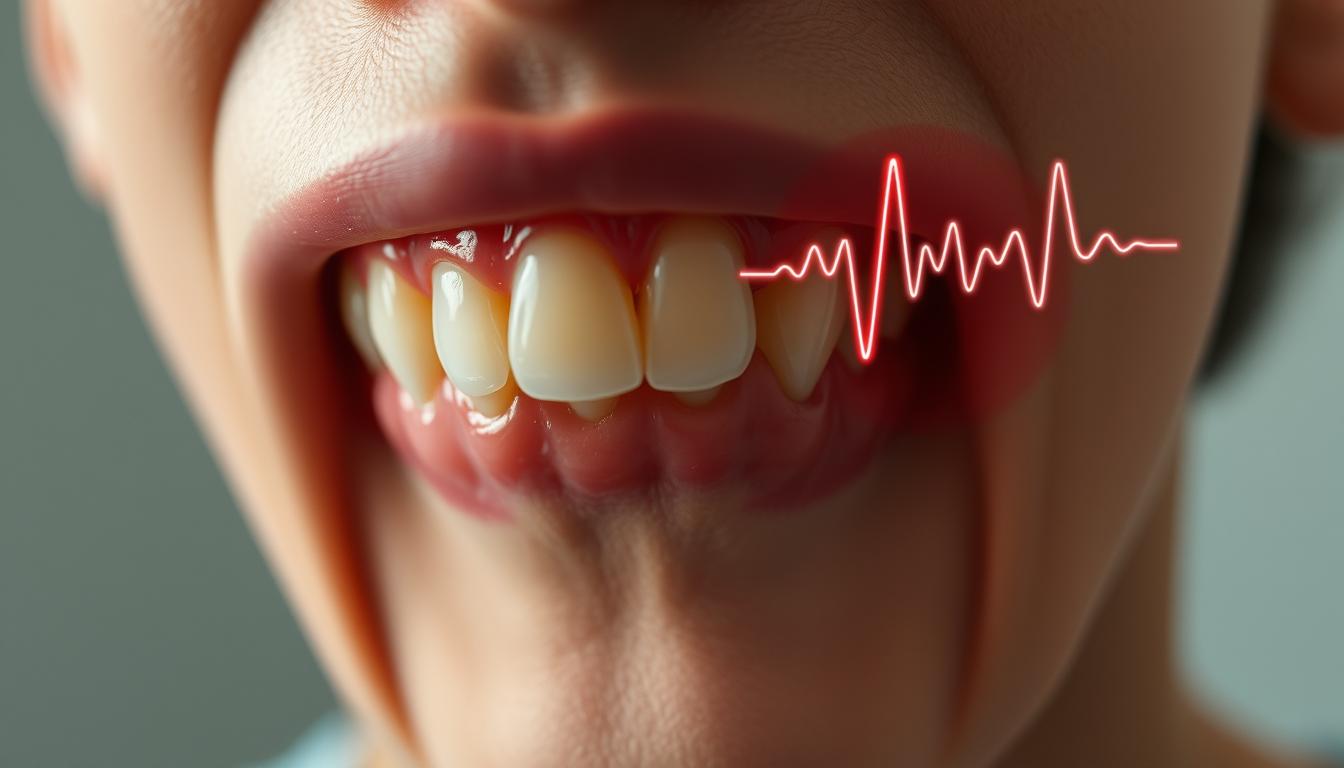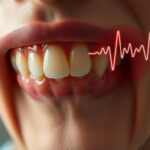Having frequent headaches can really disrupt your life. There are many things that could cause headaches, but one often overlooked is wisdom teeth. They can affect your mouth and overall comfort.
Many people wonder if their wisdom teeth could be causing their headaches. The connection is complex. It involves dental alignment, nerve pressure, and oral health.
can wisdom teeth cause headaches
It’s important to understand this connection for those with persistent headaches. By looking into how wisdom teeth might be causing their headaches, people can start to find relief.
Key Takeaways
- Understanding the link between wisdom teeth and headaches.
- Factors contributing to headaches caused by wisdom teeth.
- Potential relief options for those suffering from headaches related to wisdom teeth.
Understanding Wisdom Teeth and Their Development
Knowing about wisdom teeth and their role in oral health is key to a healthy smile. Wisdom teeth, or third molars, are the last to erupt in the human mouth.
What Are Wisdom Teeth?
Wisdom teeth are the third molars that start coming in between 17 and 25. They are in the back of the mouth, with one on each side of the upper and lower jaws. They were once crucial for our ancestors, but now they’re not as needed.
Normal Timeline for Wisdom Teeth Eruption
Wisdom teeth usually come in during young adulthood. They typically appear between 17 and 25, but timing can vary. Some may get them earlier or later, or not at all.
Why Wisdom Teeth Often Become Problematic
Wisdom teeth can cause problems for many reasons. One big issue is impaction, when there’s not enough room for them to come in right. This can lead to them growing in at an angle or getting stuck under the gum. Other problems include overcrowding, infection, and damage to nearby teeth.
| Common Issues | Description |
| Impaction | The tooth doesn’t have enough space to erupt properly. |
| Overcrowding | Wisdom teeth can cause the surrounding teeth to become crowded. |
| Infection | Partially erupted wisdom teeth can be prone to infection. |
Understanding wisdom teeth development can help people deal with the challenges they bring.
Can Wisdom Teeth Cause Headaches? The Scientific Connection
There’s a lot of research on how wisdom teeth and headaches are connected. Studies have looked into how wisdom teeth might lead to headaches. This research gives us clues about why this might happen.
Research Evidence on the Wisdom Teeth-Headache Link
Studies have looked into the link between wisdom teeth and headaches. They found that impacted wisdom teeth might cause headaches. A study in the Journal of Oral and Maxillofacial Surgery showed that removing wisdom teeth can reduce headache frequency and severity.
“The removal of impacted wisdom teeth can lead to a decrease in headache symptoms, suggesting a causal relationship between the two.”
Journal of Oral and Maxillofacial Surgery
This research supports the idea that fixing impacted wisdom teeth can help with headaches.
How Impacted Wisdom Teeth Create Pressure
Impacted wisdom teeth happen when there’s not enough room for them to come in properly. This causes pressure on nearby teeth and tissues. This pressure can lead to pain and headaches.

impacted wisdom teeth
The pressure from impacted wisdom teeth can cause jaw, face, and head pain.
The Mechanism of Referred Pain
Referred pain happens when pain is felt in a different place than where it started. Impacted wisdom teeth can cause pain in the head, leading to headaches. The trigeminal nerve helps send pain signals from the face and jaw to the brain, which can lead to headaches.
| Mechanism | Description |
| Pressure on Surrounding Tissues | Impacted wisdom teeth can exert pressure on adjacent teeth and tissues, leading to pain and discomfort. |
| Inflammation and Irritation | The impaction can cause inflammation and irritation of the surrounding tissues, contributing to pain. |
| Referred Pain | Pain signals from the impacted wisdom teeth can be referred to the head, resulting in headaches. |
Types of Headaches Associated with Wisdom Teeth
Headaches from wisdom teeth can vary. They can be caused by jaw strain, referred pain, and sinus pressure. The connection between wisdom teeth and headaches is complex.
Tension Headaches from Jaw Strain
Tension headaches are common with wisdom teeth. The strain on the jaw can lead to muscle tension and headache pain. This headache feels like a band or squeezing sensation around the forehead.
Migraine-Like Symptoms
Some people may get migraine-like symptoms from their wisdom teeth. These include severe pain on one side of the head, sensitivity to light and sound, and nausea. The exact reason is not known, but wisdom teeth pressure might trigger migraines.
Sinus Pressure and Related Headaches
Wisdom teeth can also cause headaches due to sinus pressure. The roots of the upper wisdom teeth are near the maxillary sinuses. Impacted or infected wisdom teeth can lead to sinus pressure, causing pain in the cheeks and forehead.
Knowing the different types of headaches from wisdom teeth is key for diagnosis and treatment. If you have persistent or severe headaches, see a dental professional to check if your wisdom teeth are the cause.
Recognizing Wisdom Teeth-Related Headache Symptoms
Wisdom teeth headaches can show in many ways. It’s important to know their symptoms. These headaches often come from the pressure and discomfort of wisdom teeth as they erupt or become impacted.
Characteristic Pain Locations and Patterns
The pain from wisdom teeth headaches can be felt in different places. This includes the back of the mouth, jaw, and temples. The pain can feel like a dull ache or sharp stabbing.
It’s common for the pain to spread to other areas. This can include the ears or neck.
wisdom teeth headache symptoms
Warning Signs That Accompany Dental Headaches
Other signs may show your headache is from wisdom teeth. Look for swelling and redness around the tooth. Also, difficulty opening your mouth and bad taste or breath are signs of infection.
How to Distinguish from Other Headache Types
Telling wisdom teeth headaches from other headaches can be hard. But, dental issues are a big clue. Here’s a table to help you tell them apart:
| Headache Type | Common Characteristics |
| Wisdom Teeth Headache | Pain in the back of the mouth, jaw, or temples; swelling or redness; difficulty opening the mouth |
| Tension Headache | Band-like pressure around the forehead; tenderness in the scalp or neck |
| Migraine | Severe, throbbing pain on one side of the head; sensitivity to light and sound; nausea |
Knowing these differences helps you figure out if your headache is from wisdom teeth.
Impacted Wisdom Teeth: Complications Beyond Headaches
Impacted wisdom teeth cause more than just headaches. They can harm your oral health and overall well-being.

impacted wisdom teeth complications
Why Wisdom Teeth Become Impacted
Wisdom teeth often get impacted because there’s not enough room in the jaw. This can make the tooth grow at an odd angle or get stuck under the gum.
Factors contributing to impaction include:
- Genetic predisposition
- Inadequate jaw size
- Abnormal tooth shape or size
Infection and Inflammation Risks
Impacted wisdom teeth are more likely to get infected or inflamed. The tooth growing in can trap bacteria, leading to pericoronitis, an infection of the gum tissue.
Symptoms of infection may include:
- Swelling and redness around the impacted tooth
- Pain or tenderness in the area
- Difficulty opening the mouth
Damage to Adjacent Teeth and Structures
Impacted wisdom teeth can harm nearby teeth and structures. The pressure from the impacted tooth can cause crowding or damage to other teeth.
Cysts or tumors from impacted wisdom teeth can also harm the jawbone and tissues. Regular dental check-ups are key for early detection and management of these issues.
When to See a Dentist About Wisdom Teeth Headaches
If you have headaches that might be from your wisdom teeth, knowing when to see a dentist is important. Wisdom teeth headaches can show up in different ways. It’s crucial to understand how severe your symptoms are to decide when to see a dentist.
Red Flags That Require Immediate Attention
Certain symptoms mean you need to see a dentist right away. These include severe pain that doesn’t go away with over-the-counter pain meds, swelling or infection in your gums, and trouble opening your mouth or swallowing.
Preparing for Your Dental Appointment
Before your dentist visit, make a list of your symptoms. Include when they started and what makes them better or worse. Also, be ready to talk about your medical and dental history.
What to Expect During the Examination
Your dentist will likely perform a visual examination of your wisdom teeth. They might also take X-rays to check the position and health of your wisdom teeth. Then, they’ll talk about possible treatment options with you.
Edit
Full screen View original
Delete
wisdom teeth headache treatment
Diagnosis and Assessment of Wisdom Teeth Problems
Diagnosing wisdom teeth problems involves both a visual check and X-rays. Accurate diagnosis is key to finding the right treatment.
Dental X-rays and Imaging
Dental X-rays are vital for checking wisdom teeth. They give detailed images of the teeth and bone, helping dentists spot issues like impaction, infection, or damage to nearby teeth.
dental X-rays
Clinical Evaluation Procedures
A clinical evaluation is a detailed mouth examination, including the wisdom teeth and surrounding tissues. Dentists look for signs of infection, swelling, and other symptoms that might indicate a problem.
Determining If Wisdom Teeth Are the Headache Source
To figure out if wisdom teeth are causing headaches, dentists look at your symptoms, medical history, and the results of the examination and imaging. A thorough assessment helps find the headache’s cause.
| Diagnostic Method | Purpose | Information Gained |
| Dental X-rays | Assess tooth and bone structure | Identification of impaction, infection, or damage |
| Clinical Evaluation | Examine mouth and surrounding tissues | Signs of infection, swelling, and other symptoms |
| Comprehensive Assessment | Correlate symptoms and diagnostic findings | Determination of headache cause |
Treatment Options for Wisdom Teeth-Related Headaches
Wisdom teeth headaches can be treated with the right approach. It’s important to explore different options to find relief.
Conservative Management Approaches
Before surgery, several non-surgical methods can help. These include:
- Over-the-counter pain relievers to manage headache and discomfort
- Antibiotics if there’s an underlying infection
- Monitoring the wisdom teeth for any changes or developments
Dental experts say, “Conservative management is often the first line of treatment. It focuses on alleviating symptoms without immediate surgery.”
The Wisdom Teeth Extraction Process
Wisdom teeth extraction is a common solution. This surgery removes the problematic teeth. The process includes:
- Evaluation through X-rays to assess the position and condition of the wisdom teeth
- Administration of appropriate anesthesia to ensure comfort during the procedure
- Surgical removal of the wisdom teeth
Recovery Timeline After Extraction
Knowing the recovery timeline is key. The process can be broken down as follows:
| Timeframe | Expected Recovery Progress |
| Immediate Post-Surgery (0-24 hours) | Rest, possible swelling, and discomfort managed with medication |
| Short-Term (2-3 days) | Gradual reduction in swelling and discomfort |
| Long-Term (1-2 weeks) | Significant healing, return to normal activities |
Pain Management Strategies Post-Treatment
Effective pain management is crucial after wisdom teeth extraction. Strategies include:
- Prescribed pain medication
- Cold compresses to reduce swelling
- A soft-food diet to minimize discomfort while chewing
Understanding these treatment options helps individuals manage wisdom teeth-related headaches.
Other Dental Causes of Headaches to Consider
Wisdom teeth aren’t the only cause of headaches. Other dental issues also play a role. It’s important to consider these when diagnosing pain.
TMJ Disorders and Facial Pain
TMJ disorders are a common headache cause. The TMJ connects the jawbone to the skull. Problems here can cause pain in the face, jaw, and head.
TMJ disorders can result from jaw injuries, teeth grinding, or jaw misalignment.
Bruxism (Teeth Grinding) Effects
Bruxism, or teeth grinding, can also cause headaches. It often happens during sleep and strains the jaw muscles. Addressing bruxism through dental interventions can help.
Bite Alignment Issues
Problems with bite alignment can also cause headaches. When teeth don’t fit right, it strains the jaw and facial muscles. Correcting bite alignment issues can help alleviate headache symptoms.
Conclusion
Understanding the link between wisdom teeth and headaches is key. Wisdom teeth can lead to headaches due to impaction, nerve pressure, and pain referral. This is backed by research.
Knowing the pain patterns from wisdom teeth is crucial. It helps tell them apart from other types of headaches. This knowledge is important for diagnosis.
Getting dental advice is essential for wisdom teeth headaches. A dentist can check your teeth and suggest treatment. This might include managing the issue or removing the teeth. Knowing about wisdom teeth and headaches helps improve your oral health.
Can wisdom teeth cause headaches? Yes, they can. Being aware of the causes and symptoms helps get timely dental care. Managing these headaches requires understanding the factors and working with dental professionals.
FAQ
Can wisdom teeth cause headaches?
Yes, wisdom teeth can cause headaches. This happens when they press on nerves and tissues, especially if they’re impacted.
What are the symptoms of impacted wisdom teeth?
Symptoms include pain in the back of the mouth, jaw pain, swelling, and headaches. Impacted teeth can also lead to infection, causing fever and bad breath.
How are impacted wisdom teeth diagnosed?
Diagnosis involves dental X-rays, clinical checks, and sometimes 3D scans. A dentist will look at the teeth’s position and condition to see if they’re causing problems.
What are the treatment options for wisdom teeth-related headaches?
Treatment options include pain relief and removing the teeth. The choice depends on the problem’s severity and your oral health.
Is wisdom teeth extraction a painful procedure?
Wisdom teeth extraction is done under local anesthesia or sedation. While some pain is normal after, medication and care can help manage it.
Can other dental issues cause headaches besides wisdom teeth?
Yes, issues like TMJ disorders, bruxism, and bite problems can also cause headaches. A full dental check is needed to find the cause.
How can I prevent wisdom teeth-related headaches?
Prevention involves regular dental visits to watch your wisdom teeth. Sometimes, removing them before problems start is recommended.
What is the recovery time after wisdom teeth extraction?
Recovery time varies based on the procedure and individual factors. It usually takes a few days to a week. Rest, pain management, and a soft diet are advised during this time.
Read more – pimples during ovulation why do they occur











Leave a Comment